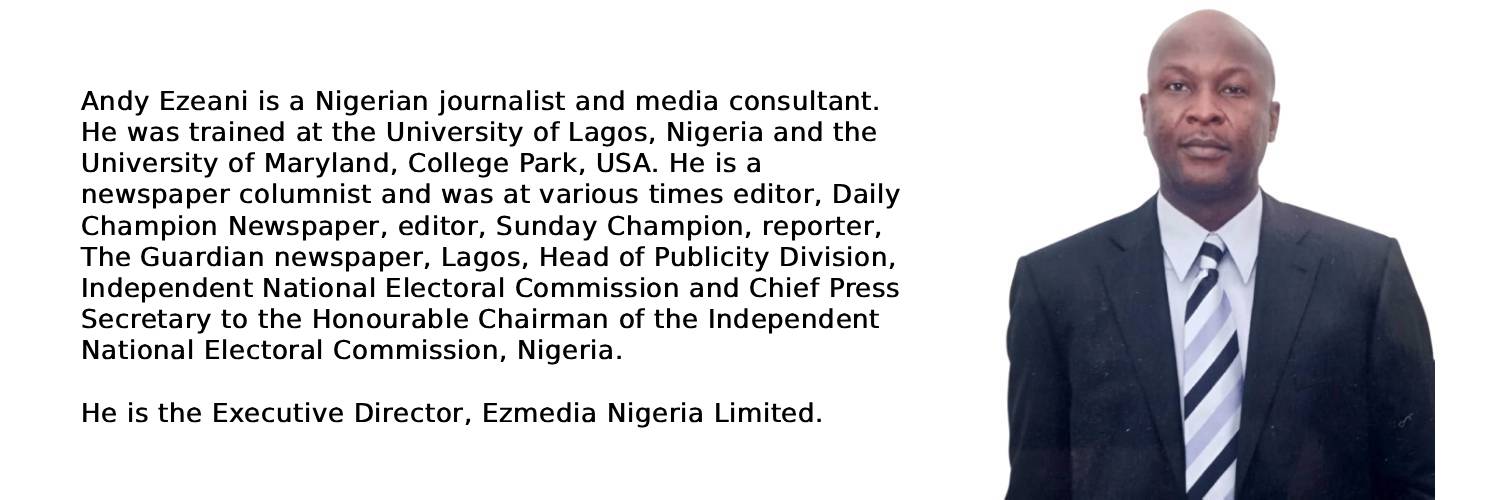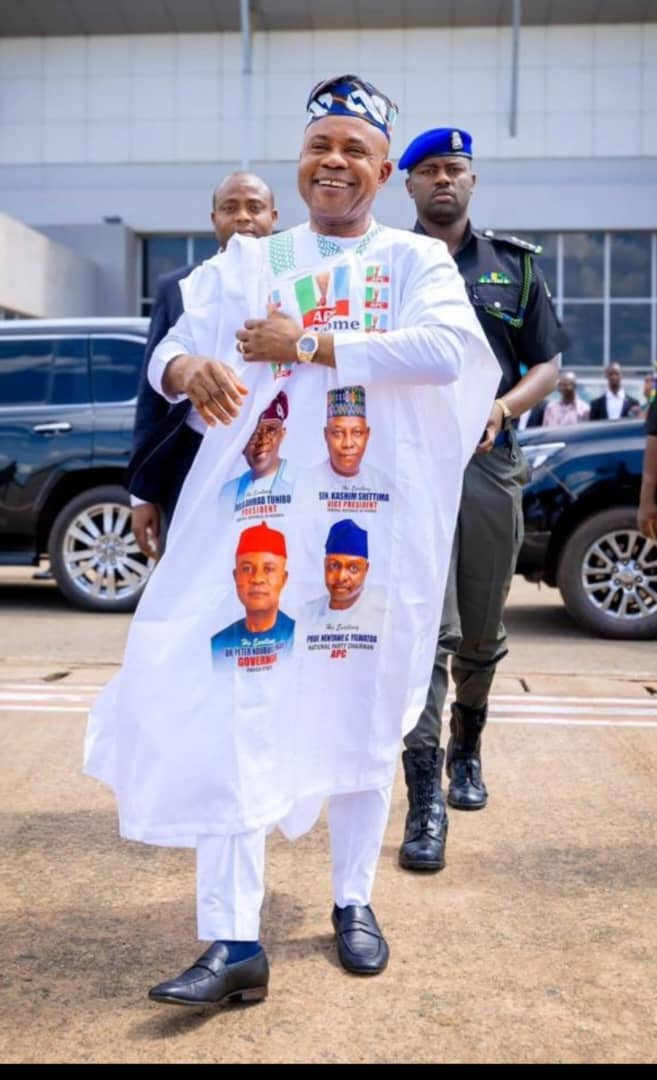Andy Ezeani
It seems just like yesterday, although it was all of 28 years back. 1997. The air was delicately pregnant. The prospect of democracy being restored to Nigeria, which the military had promised, was at the verge of being sabotaged from the very top of the government.
A rash of rallies exploded across the country, especially in Abuja, featuring a sea of heads on the appointed days.
Many at the rallies were obviously not capable of appreciating the import of what they were doing. That did not matter to those who rented the crowd, anyway. What mattered was the specious optics. The crowd was intimidating.
The major rally was billed as a two-million-man march, held under the auspices of a contrived movement, Youths Earnestly Ask for Abacha (YEAA). The campaign was one of those ignoble projects where the government called forth amenable collaborators and individuals beholden to it to work. Every government has them in abundance.
What were the said youths earnestly asking from General Sani Abacha? The prayer was straight; for him to transmute from the quintessential jackboot that he personified to a civilian president in a democratic hue. Nigeria needed him, so said his cheerleaders.
The whole idea, repulsive and frightening as it was, would even have been considered by some, in spite of its apparent oddity, had Abacha shown willingness to subject himself to the democratic process.
Had he expressed readiness to pitch himself against other candidates and political parties, although the playing field would certainly not be level,but there would have been a semblance of an electoral contest.
But the General and his faithful epigones did not want any contest. Abacha desired to transform overnight from a military dictator to a democratic leader, but he did not fancy passing through the crucibles that validate democratic credentials.
By corralling all other possible competitors behind him, the general aimed to emerge a democrat by fiat.
Abacha and his cohorts were not lacking in support from the political class. There were not a few identifiable elements who went along with him, either because they were running scared or purely as a business proposition.The campaign went as far as it could, until fate intervened. That was then. Twenty-eight years ago.
The idea of a democracy without democrats obviously did not die with Abacha. That troubled concept continues to inhabit a number of minds in Nigeria.
Indeed, it has been a recurring problem, manifesting often in the abnormality of various contenders for prime political offices trying to attain their desired goal through acts of subterfuge rather than squarely facing competition and prevailing in a fair contest.
Frequent instability in the political parties and democracy in Nigeria,at large, can easily be traced to the phenomenon of non democrats trying to practice democracy.
Unfolding events relating to the next general election in 2027 have again raised this very spectre to the fore. The strategy may be slightly different, but the mindset remains the same.
It is curious that while public effort is being made to hoist the flag of democracy in the land, the processes and values of true democracy are covertly being undermined at the same time.
The aberrant scenario of governors from opposition parties succumbing to the ruling All Progressive Congress (APC) and emptying into it like sewage water cannot but portend danger to democracy in the country. Nothing makes sense about the development.
The task of political parties and candidates in democracy is to convince more voters to embrace and vote for them, not to obliterate opposition across the line. That is the Abacha doctrine.
In the wake of the latest desertion last week,of the Peoples Democratic Party (PDP) Governor of Bayelsa State, Duoye Diri and his Enugu State counterpart, Governor Peter Mbah, for the APC, Diri’s predecessor and Senator, Serieke Dickson publicly wondered that, “These days you don’t know what is pursuing most of these governors and leaders defecting to the APC, or what they are pursuing”. Diri is in his second term as governor, mark you.
Mbah’s emergence as governor, for one, has an underlining disability. He has done remarkably well to ameliorate the disability through his performance, but you just never know.
Last week, he told a national newspaper that his “allegiance is not to the colour or the logo on a flag”, an allusion to party loyalty. His allegiance, he said, “is to the people of Enugu state, who in the first place, entrusted us with the mandate to serve them”.
Every portion of his comment came across wretched and devoid of the values of principle and decency he tried to convey.
It would have been surprising if Mbah or Diri or any other of the governors that have succumbed to APC failed to insult their people further by bringing them up as beneficiaries of their aberrant conduct.
The logic of the actions of politicians in Nigeria is, more often than not, steeped in illogicality. It is not as if they do not know that, but they hardly care.
To the politician, there does not seem to be a better way to mock a subjugated docile populace than to be peeing on their head repeatedly and be telling them with a bold face that it is raining That ability to mete out gratuitous insult to the intelligence of the rest of the society has become a hallmark of success among politicians in Nigeria. Chicanery is a veritable part of the calling.
In one of its editions in late 2000 after that year’s presidential election in the United States of America ( USA) Newsweek magazine noted a shift in the choice of party among a demographic sub set during the election.
It used to be that older Americans voted more for the Democratic party for almost a century. It went back to the era of the New Deal by the Franklin Delano Roosevelt presidency.
The voters who benefitted from that policy aligned themselves to the Democratic Party and remained faithful to it all through their life. That was a statement on fidelity by individuals and testimony of stability of a political system. Neither the leaders of the party nor the followers jumped ship in the years the Democratic party did not fare well.
The shift Newsweek found out occurred because the older voters were dying off, and new elders had emerged.
The point there is that allegiance to a political party (what Mbah referred to as logo) is tied to principle. It is often a lifetime affiliation. Fidelity to party affiliation is a test of character, more so as a leader.
Instructively, while the opposition governors are earnestly asking for Tinubu and succumbing to whatever is pursuing them, they fail to note that for eight years Tinubu was an opposition governor in Lagos, and faced intense pressure from the ruling party at the centre. He did not see any need to take his state to the centre.
As Senator Dickson aptly puts it, when a ship runs into a storm, “Captains who are truly deserving of their ranks are the last to bail out”. Alas, the captains have gone. Tinubu should better find a decent strategy to run and possibly win, not a resort to the Abacha doctrine. That is too tainted to sustain a virile democratic order.


